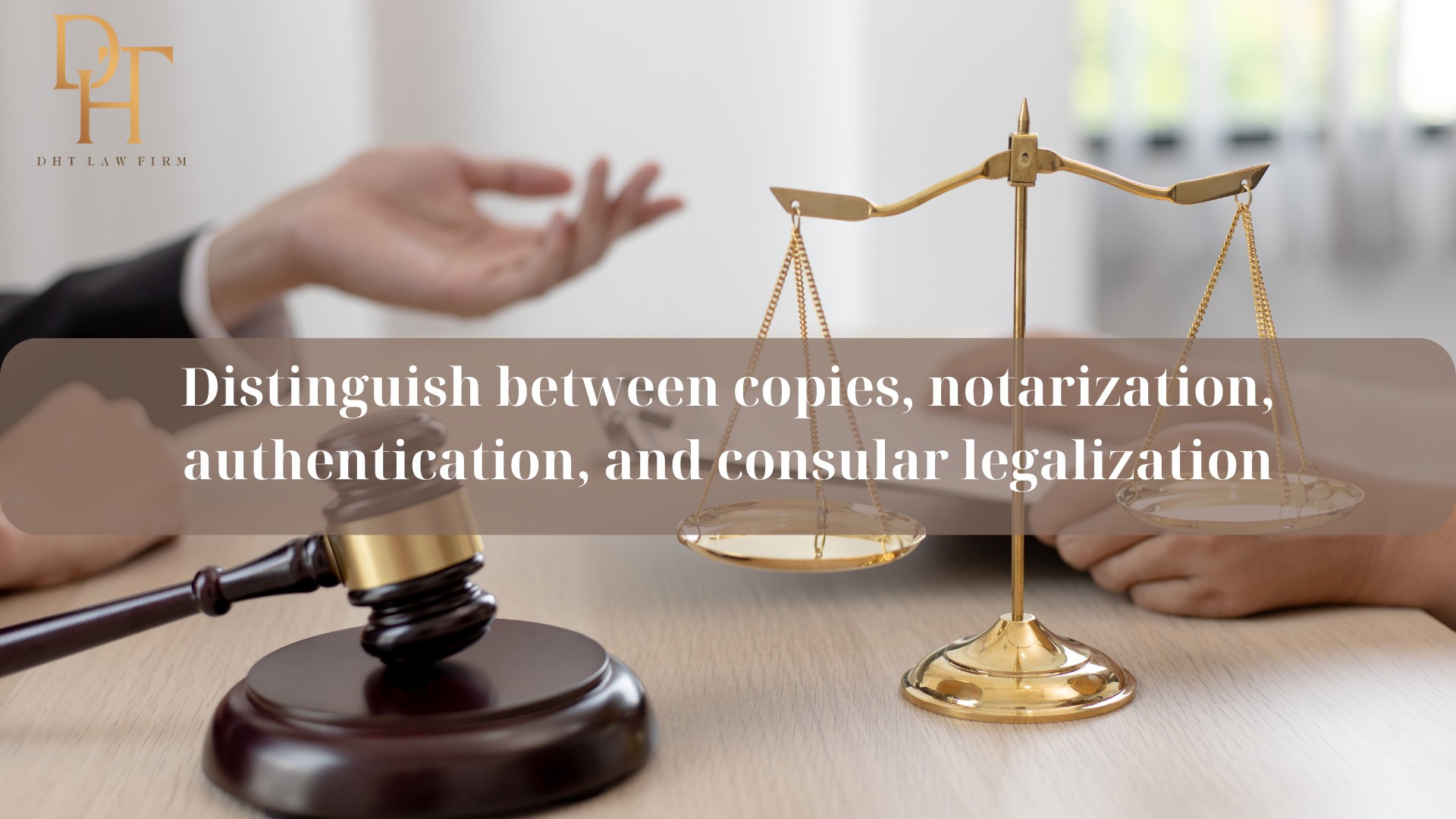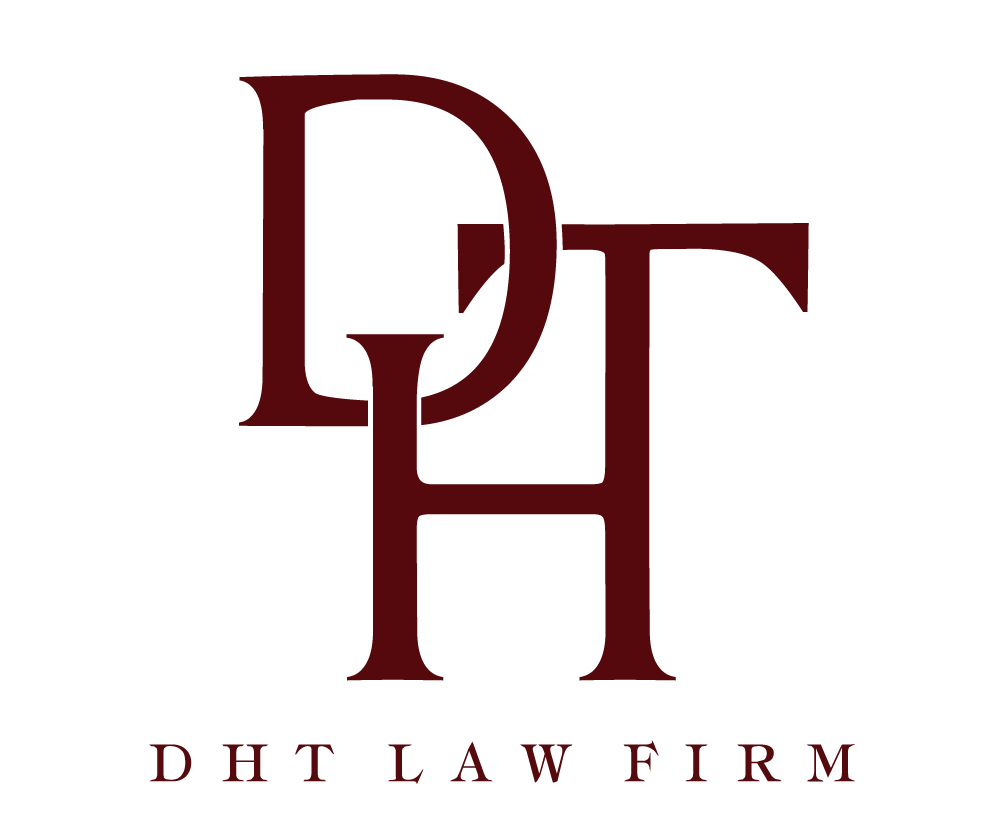
DISTINGUISH BETWEEN COPIES, NOTARIZATION, AUTHENTICATION, AND CONSULAR LEGALIZATION
Currently, when carrying out legal activities in Vietnam and abroad, several papers, documents, and dossiers must be notarized, authenticated, or consular legalized to ensure legal validity. With the increase in quantity and the complexity of legal activities, especially with foreign elements in Vietnam, people need to clearly understand nature and other related issues to save time and effort. However, several people can not distinguish between copies, notarization, authentication, and consular legalization.
Therefore, within this article, Dai Ha Thanh Law Firm will provide some information and distinguish the differences between copies, notarization, authentication, and consular legalization activities
1. The definition of copies, notarization, authentication and consular legalization
1.1. The definition of notarization
Notarization means certifying the authenticity and legality of contracts and other civil transactions in writing (hereinafter referred to as contracts, transactions); the accuracy and not contrary to social ethics of the translations and documents from Vietnamese into foreign languages or from foreign languages into Vietnamese (hereinafter referred to as translation) that must be notarized under regulations or individuals or organizations voluntarily request notarization (Clause 1 Article 2 Notary Law 2014).
1.2. The definition of authentication
Currently, Vietnamese law does not have any specific definitions for authentication. It is mainly defined through particular activities, specifically in three aspects:
"Authentication of copies from originals" means competent state agencies or organizations certify the copy is true to the original (Clause 2 Article 2 Decree 23/2015/ND-CP).
"Signature authentication" means competent state agencies or organizations authenticate the signature in documents or dossiers as the signature of the person requesting authentication (Clause 3 Article 2 Decree 23/2015/ND-CP).
"Authentication of contracts and transactions" means competent state agencies or organizations authenticate the time and place of entering into a contract or transaction; civil act capacity, willingness, signatures, or fingerprints of the parties in the contracts or transactions (Clause 4 Article 2 Decree 23/2015/ND-CP).
Thus, according to the above regulations, authentication can be defined as the act of agencies and organizations confirming the accuracy and authenticity of copies, contracts, civil or economic transactions, individual signatures, legal acts, and other personal information (Vu Thi Thao (2015), "Legal topic on authentication", Special issue of legal propaganda, No. 02/2015, p.6).
1.3. Definition of consular legalization
Consular legalization means the act of the Ministry of Foreign Affairs, diplomatic missions, consulates of Vietnam, or other authorized authorities abroad performing the consular function of certifying the signatures and stamps on documents issued, granted, or certified by foreign competent agencies for use in Vietnam (Clause 1 Article 7 Law on Legal Assistance 2007). Besides, “Consular legalization” is also defined as the act of Vietnamese competent agencies certifying stamps, signatures, and titles on foreign documents or dossiers for being recognized and used in Vietnam (Clause 2 Article 2 Decree 111/2011/ND-CP). Thus, according to both definitions, consular legalization means the act of Vietnamese competent authorities to certify stamps, signatures, and titles on foreign documents or dossiers.
1.4. Definition of a copy
"Copy" means a photocopy of the original or a typed copy with full and accurate content as in the original book (Clause 6 Article 2 Decree 23/2015/ND-CP).
2. Distinguish between copies, notarization, authentication, and consular legalization
|
|
|
|
|
|
|
|
|
|
|
|
|
|
|
|
|
|
|
|
|
|
|
|
|
|
|
|
|
|
|
|
|
|
|
|
|
|
|
|
|
|
|
|
|
|
|
|
Above is an overview of legal issues related to the differences between copies, notarization, authentication and consular legalization. With the above information, We hope that foreign individuals and organizations needing notarization, consular legalization, and authentication will have the necessary information. If you have any questions related to this issue, please contact us for professional and effective legal consulting services.
